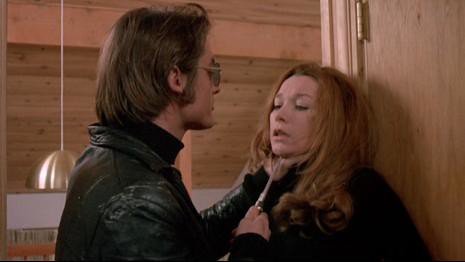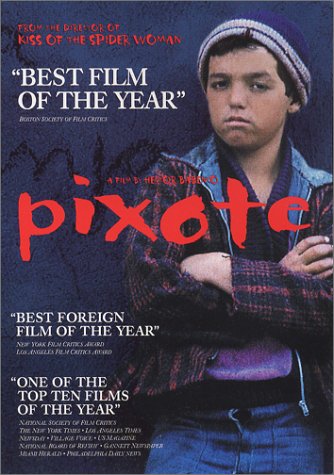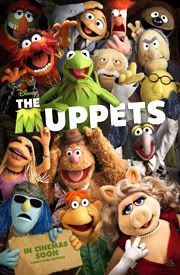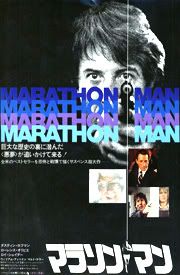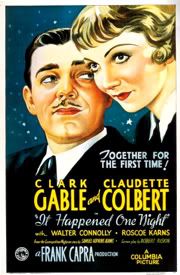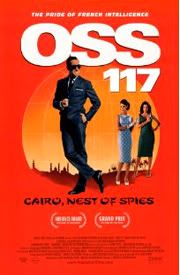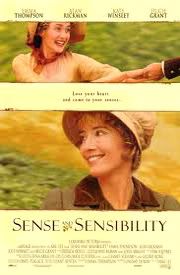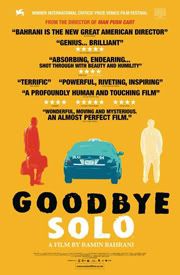Here are some from this month:
The Tourist (Florian Henckel von Domersmarck, 2010)
- Mostly lackadaisical thriller with Johnny Depp and Angelina Jolie gets points for the Venice locations and improving as it progresses.
Charly (Ralph Nelson, 1968)
- Film adaptation of
Flowers for Algernon snagged an Oscar for Best Actor for Cliff Robertson. The film is equal parts awkward and affecting, but overall still worth a look for its premise of turning a retarded man into a genius through drugs.
America America (Elia Kazan, 1963)
- Kazan's personal epic about his Greek uncle migrating from Turkey to America is entertaining, if a bit obvious, but has wonderful Haskell Wexler cinematography and Dede Allen editing.
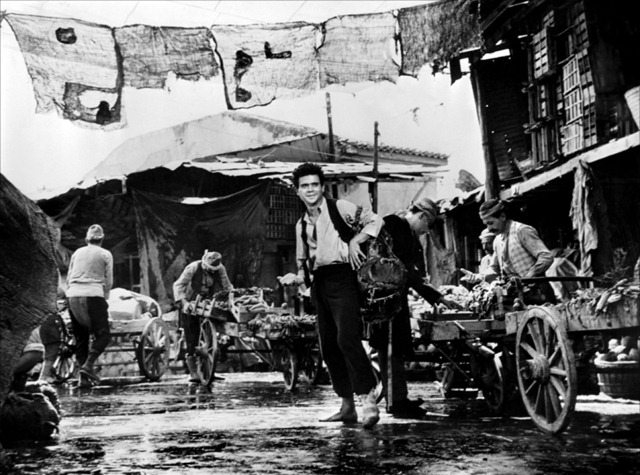
Angel Baby (Paul Wendkos, 1961)
- One of the better religious films made in the wake of
Elmer Gantry is this modest faith-healing flick where George Hamilton is fought over by Mercedes McCambridge and Salome Jens.
The Cry Baby Killer (Jus Addiss, 1958)
- The only reason to watch this is to see Jack Nicholson make his feature debut at age 21 as the title character. Otherwise, this is boring and preposterous, but a slight step up from Ed Wood flicks.

Little Shop of Horrors (Roger Corman, 1960)
Cult Rating
- Corman shot this in two days and one night, creating a follow-up to his equally black-comic
Bucket of Blood. This one has Jonathan Haze as a beatnik botanist/delivery boy, Jackie Joseph as his perky girlfriend, Dick Miller as a wacko who loves to eat flowers (with added salt) and Jack Nicholson as a masochist who loves pain, especilly from the dentist.
Death Watch (Bertrand Tavernier, 1980)
- Surprisingly muddled and lifeless "sci-fi" about Harvey Keitel (with a camera implanted in his head) covering the last days of novelist Romy Schneider for a TV show, although she doesn't know his true identity.
Miller's Crossing (Coen Bros., 1990)
- Coen Bros. film which most successfully straddles the bizarre and the classic has solid performances, dialogue, acting and period detail, as well as numerous spectacular set pieces.

Tracks (Henry Jaglom, 1976)
- Dennis Hopper stars as a Vietnam War soldier escorting a coffin with a dead soldier on a train ride to the dead man's hometown cemetary. Along the way, Hopper encounters numerous characters and engages in sex and violence, some real and some imagined.
Silent Running (Douglas Trumbull, 1971)
- Simple sci-fi film, with a solid premise about a spaceship trying to preserve Earth's greenery, gives Bruce Dern a chance to play the lead and give a superb performance as a man who feels the burden of possibly being the future Savior of a polluted Earth. Nice debut by Trumbull, who's mostly known for doing F/X in
2001 and
Close Encounters.
Torn Curtain (Alfred Hitchcock, 1966)
- Hitch has a subpar script but still films one great scene involving a murder in a kitchen. Paul Newman and Julie Andrews obviously deserve better, but it's still just barely watchable for the average thriller fan.
Life is Beautiful (Roberto Benigni, 1998)
- A sweet and witty romantic comedy turns into a farcical Holocaust film, and even if there are patches where the melding seems awkward, there's no denying that the film works for the most part and becomes a poignant memoir with Benigni approaching Chaplin territory.

The Devil By the Tail (Phillippe de Broca, 1969)
- French farce about a weird family involved with a bumpkin thief (Yves Montand) who's really a chef at heart. Underseen film has an attractive cast and French countryside locations.
The Razor's Edge (Edmund Goulding, 1946)
- Lush filming of the Somerset Maugham novel tells a story I actually appreciate about a young man (Tyrone Power) who searches for something resembling the meaning of life, while all his friends and acquaintances struggle with war, the Stock Market Crash, insanity and various other calamities. It's certainly watchable with a huge cast, but somehow it still seems a bit superficial which is really unfortunate for an underachieving bum such as I.
One, Two, Three (Billy Wilder, 1961)
+ - Wilder and co-scripter I.A.L. Diamond fashioned one of the fastest, funniest comedies ever, based on a European play, but situated here in the divided city of Berlin during the height of the Cold War. There are as many jokes here about sex and movies as there are about politics, and James Cagney is a marvel playing a Coca-Cola executive who's forced to "babysit" his boss's daughter (Pamela Tiffin), even after she gets pregnant by a beatnik communist (Horst Buchholz). A laugh riot.
The Ox-Bow Incident (William A. Wellman, 1943)
- This is as solemn as the previous film is irreverent. It's a powerful western about lynching, short at 75 minutes while making its point poetically. I won't give anything away, but the whole thing is superb, especially Henry Fonda.
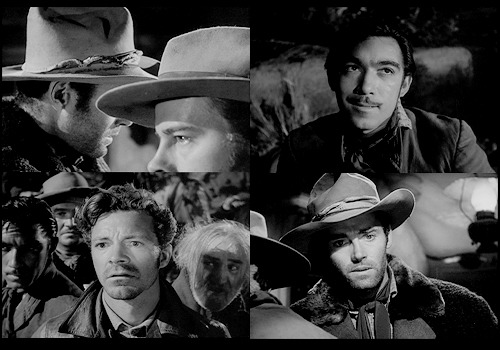
Wordplay (Patrick Creadon, 2006)
+ - Fascinating documentary about the New York Times crossword puzzle, how the puzzles are made, who does them and the annual tournament involving them. Very entertaining subject and presentation, especially for crossword puzzle freaks.
A Kind of Loving (John Schlesinger, 1962)
- Schlesinger's debut is a simple film of the British New Wave about a draftsman (Alan Bates) who has an on-again/off-again relationship with a young woman (June Ritchie) at his job and how it affects their lives when she gets pregnant. Nothing too interesting but well-crafted.
The L-Shaped Room (Bryan Forbes, 1962)
+ - Tale of a pregnant French woman (Leslie Caron) who is going to have her baby in London and the neighbors she encounters in her flat, especially two men, played by Tom Bell and Brock Peters. Engrossing tale is one of the more overlooked British films of the period.
Theater of Blood (Douglas Hickox, 1973)
- Vincent Price has a field day playing a supposedly-dead Shakespearean actor who wreaks vengeance on a critic's circle whom he believes cheated him out of an acting award. He dispatches each critic by gorily replicating murders from Shakespeare's plays, all with the help of his yummy daughter, Diana Rigg.

All That Heaven Allows (Douglas Sirk, 1955)
- Quintessential Sirk/Ross Hunter soap opera inspired both Fassbinder's
Ali: Fear Eats the Soul and Todd Haynes'
Far From Heaven. The original has widow Jane Wyman falling for her gardener (Rock Hudson), although he's more of a botanist than just the son who took over his father's business when he died. Problems arise when the tongues start wagging from all her family, friends and acquaintances who come up with every possible misgiving over meaningless piffle.
The Godfather (Francis Ford Coppola, 1972)
- Peerless gangster saga, both about the American Dream and the American Nightmare, is masterfully crafted and acted by a cast which seems to fully inhabit each and every character, so much so that the viewer believes they know them all well. All the scenes flow smoothly from one highlight to the next.
The Devil and Daniel Johnston (Jeff Feuerzeig, 2005)
Cult Rating
- Interesting documentary about cult musician Daniel Johnston who created a series of homemade cassette albums of creative music in the 1980s while also living a bizarre life which included bouts of mental illness, violence and demonic obsession, seemingly triggered by his experiences with LSD. He's still currently touring, and Sarah saw him not too long ago, so there's more to his story...

Woman and Child (Rodrigo Garcia, 2009)
- Serious film about adoption and how it affects three seemingly-disparate women: lawyer Naomi Watts, medical tech Annette Bening and African-American baker Kerry Washington. It holds your attention but still seems a bit slow although it improves as it reaches its climax.
Planet of the Apes (Franklin J. Schaffner, 1968)
- Wonderful sci-fi/social satire plays out as an extended "
Twilight Zone" episode, which makes sense with Rod Serling working on the script. Charlton Heston gives probably his best performance, and the entire film has passed into folklore, not only for its perfect plot but for its awesome ending.
Rosemary's Baby (Roman Polanski, 1968)
+ - Polanski's adaptation of Ira Levin's novel is perfect and his mise-en-scene is masterful, creating dread just by hearing a car horn honk or the repetition of an unseen pianist practicing Beethoven. The duality found in the sound effects and character behavior is meticulous and gives sharp viewers many clues in how to interpret what's going on with Rosemary (Mia Farrow), her husband (John Cassavetes) and the other characters we see at that creepy apartment building with a past.






